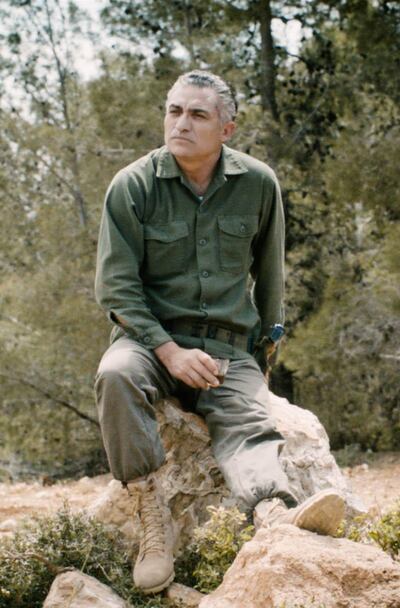A fictional heist movie that has come under fire for the alleged falsification of historical facts, including its claim of Jewish connections to ancient land in Jordan, has been forced to halt filming by the Jordanian government following a backlash.
The decision, under the instruction of Jordan's Prime Minister Omar Al Razzaz, is the latest development in a storm of controversy surrounding the movie. It was initially blasted by the Jordanian Artists Association (JAA) for its depiction of “Jews’ rights to land in Jordan and occupied Palestine”, last month and several actors quit the production as a result.
The movie Jaber tells the story of a Bedouin boy who discovers a rock with Hebrew lettering written on it. The rock holds great value, and during the boy's attempt to sell it, he is forced to find ways to evade gangsters who are interested in it.
Opponents point out that this narrative plays into the controversial theory that Jews were brought by Moses to Petra instead of Mount Sinai before moving on to Palestine 40 years later.
Critics argue any indication of Jewish roots in the Hashemite Kingdom could lead to Israeli territorial claims. Although this is an unlikely prospect, with the 1994 peace agreement between Israel and Jordan in place, the closure of Aaron’s Tomb when a group of Israeli pilgrims allegedly prayed there illegally at the beginning of the month is evidence that it is still a delicate topic that has the potential to spark further friction.
Filming was due to commence this month until actors began to drop out of the production, igniting a backlash by the general public across social media. Ali Elayan, due to play the role of a Jordanian police officer, was the first to pull out from the movie.

"This is about historical rights and the political implications. It may be a fictional movie, but cinema is also a visual document – people believe what they see. To not only film in Jordan but to present this story with Arab hands reinforces these false facts and this is very dangerous," Elayan told The National.
“As my photo was used as part of the poster I had to make it clear that I had nothing to do with the script. I followed procedure by reporting it to the JAA and then other actors also chose to withdraw.”
He says the film’s intended audience was America and other foreign countries outside of the region. For Elayan, this made his decision to take a stand against the movie even more crucial.
In response to the uproar, the Jordanian government announced on Wednesday that the movie’s production would be suspended until the script has been studied and a recommendation made. No time frame has been given.
Jamal Meri, who was set to play the role of the boy’s father, was among the group of actors who chose to leave the production. He says the Royal Film Commission (RFC), which approved the movie, “must read the entire script, particularly if it’s a foreign production”.
However, a statement released by the RFC rejects the notion that its role is to act as a regulatory body within Jordan’s media industry and therefore “does not have the mandate to approve scripts nor the final production”.
This is the second time the RFC has found itself embroiled in controversy in recent months. In June, it was heavily criticised for approving the Netflix series Jinn which includes vulgar language and kissing scenes that were deemed offensive.
The RFC clarified its role at that time, which it stated does not include vetting scripts. Instead its objectives are to “encourage local productions, attract foreign productions and facilitate production in general”.
Director Muhyiedeen Qandour, who also wrote the book of the same name that the film would be based on, denied claims the movie script would encourage territorial claims by the Israelis, according to the Associated Press. "Many civilizations passed through historical Jordan. You don't see them now returning to claim parts of the country because they were here once in the past," he said. "The argument made by some about the movie is simply naive and even childish."
The director/writer is a UK-based Jordanian who has also worked in Hollywood, producing and directing TV shows and films including The Spectre of Edgar Allen Poe and Cherkess.
Through the signing of the 1994 peace agreement joint strategies were set up between Jordan and Israel across energy, water and security, tensions between the two countries have been on the rise. Jordan’s King Abdullah II announced last year his decision to take back control of areas leased to Israeli farmers when the leases expire.
* Additional reporting by Asmahan Bkerat


